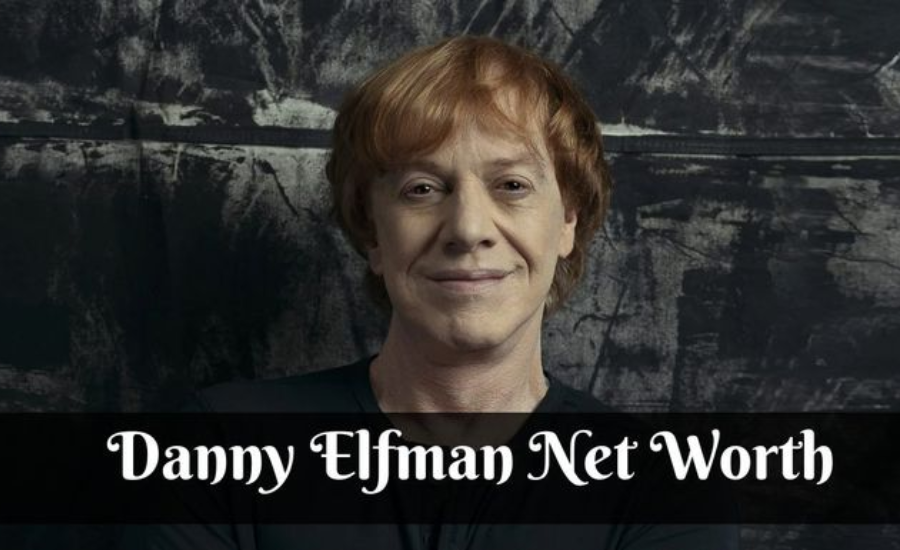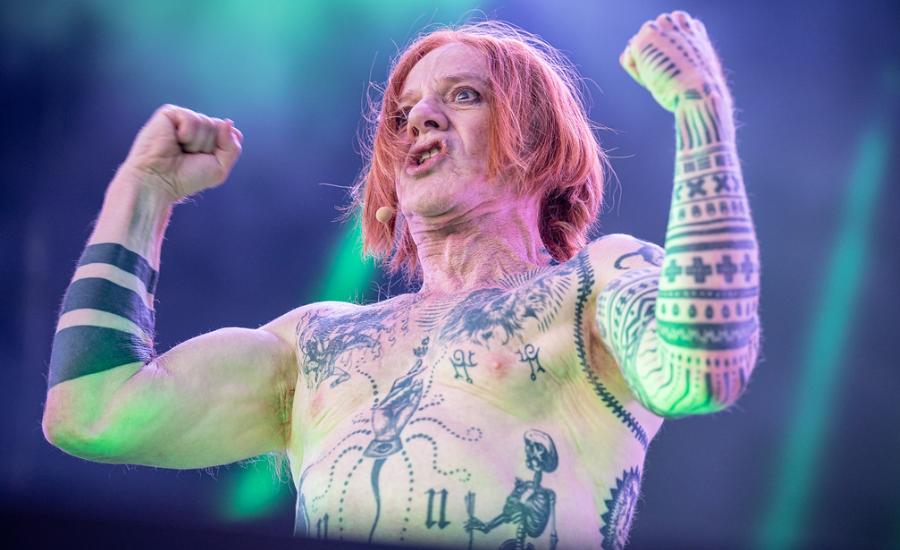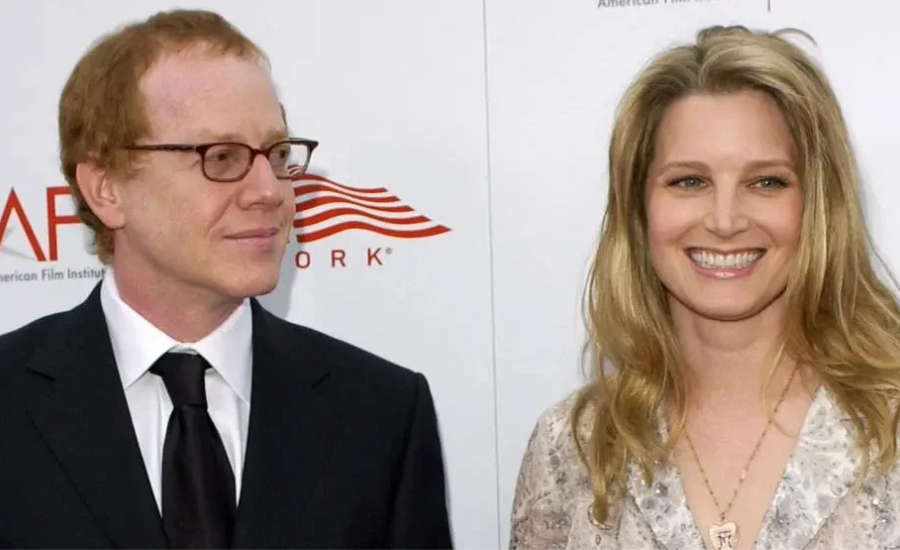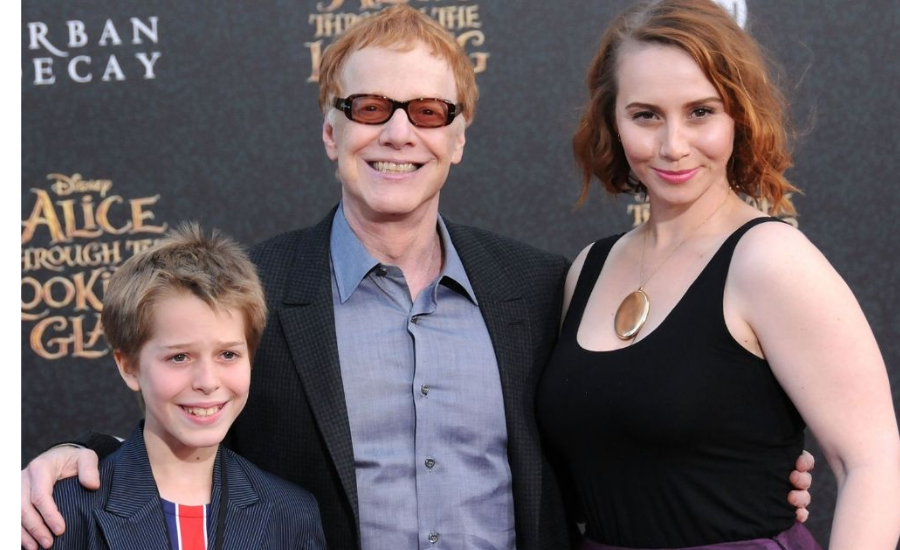Danny Elfman Net Worth$50 Million
Danny Elfman is a multi-talented composer, singer, songwriter, and actor with a remarkable legacy in the entertainment industry. With an estimated net worth of $50 million, Elfman’s career spans decades, leaving an indelible mark on music and film. Rising to fame as the frontman of the new wave band Oingo Boingo, Elfman’s innovative sound and unique approach to music quickly propelled him into the spotlight. After transitioning into film composition, he solidified his status as one of Hollywood’s most prolific composers, famously collaborating with director Tim Burton on numerous projects and crafting unforgettable scores for over 100 films.
Elfman’s impressive repertoire includes celebrated works such as Pee-wee’s Big Adventure (1985), Batman (1989), Edward Scissorhands (1990), and Big Fish (2003). Beyond film, his contributions to television, such as the instantly recognizable theme for The Simpsons (1989), have also earned him widespread acclaim. A true creative force, Elfman has lent his voice and acting talents to films like The Nightmare Before Christmas (1993) and Corpse Bride (2005), showcasing his versatility and passion for storytelling.
What is Danny Elfman’s Net Worth?

Danny Elfman, the renowned American composer, singer, songwriter, and actor, has amassed an impressive net worth of $50 million throughout his multifaceted career. Best known as the lead vocalist and primary songwriter for the influential rock band Oingo Boingo, which he fronted from 1979 to 1995, Elfman transitioned into film scoring, where he truly made his mark. With over 100 films to his name, Elfman has created iconic soundtracks for a wide range of movies, including collaborations with director Tim Burton on 16 films such as Pee-wee’s Big Adventure (1985), Batman (1989), Edward Scissorhands (1990), and Big Fish (2003). His musical influence extends to television as well, having composed the beloved theme song for The Simpsons (1989) and the score for Desperate Housewives (2004). Additionally, Elfman has appeared in several films, provided voice work for Tim Burton’s animated features like The Nightmare Before Christmas (1993) and Charlie and the Chocolate Factory (2005), and served as associate producer for The Nightmare Before Christmas, cementing his lasting legacy in both music and film.
Early Life: A Creative Beginning

Born on May 29, 1953, in Los Angeles, California, Daniel Robert Elfman grew up in a family that nurtured creativity and the arts. His father, Milton Elfman, was an author and educator, while his mother, Blossom Elfman, was a writer and teacher. This supportive environment inspired young Danny to explore music, film, and storytelling.
From an early age, Elfman developed a fascination with cinema, particularly the fantasy and horror genres. These films left a profound impression on him, planting the seeds for his future work as a composer. The dark, atmospheric tones of these genres would later define much of his musical style, blending whimsy with haunting melodies.
Elfman’s admiration for legendary film composers, particularly Bernard Herrmann, deeply influenced his career. Herrmann’s groundbreaking scores for Alfred Hitchcock’s films, known for their dramatic intensity and innovative orchestration, inspired Elfman to experiment with bold, unconventional arrangements. This inspiration laid the foundation for Elfman’s signature sound, characterized by a seamless fusion of classical techniques and modern flair.
The Road to Music And Film

Elfman’s journey into music was anything but traditional. After briefly attending Fairfax High School in Los Angeles, he enrolled at Los Angeles City College. However, the structured environment of formal education didn’t appeal to him, and he left college to pursue his passion for music and exploration. His curiosity and adventurous spirit took him on a transformative journey across Europe and Africa, where he immersed himself in diverse musical traditions and cultural experiences.
While in France, Elfman performed with an avant-garde theatrical troupe, honing his skills in performance and composition. His travels in Africa exposed him to the rich, rhythmic complexity of traditional music, further expanding his creative horizons. Despite not receiving formal musical training, Elfman’s eclectic experiences provided him with a unique perspective, allowing him to develop a self-taught approach to composing that defied conventional norms.
Danny Elfman Oingo Boingo Era
Elfman’s first major breakthrough came in the late 1970s with the formation of The Mystic Knights of the Oingo Boingo, a theatrical performance group founded by his brother, Richard. Over time, the group evolved into the new wave band Oingo Boingo, with Elfman stepping in as the lead vocalist and primary songwriter.
The band gained popularity throughout the 1980s with their eclectic blend of rock, ska, and experimental sounds. Hits like Weird Science and Dead Man’s Party showcased Elfman’s ability to craft catchy, innovative music that resonated with fans. While Oingo Boingo disbanded in 1995, their music remains influential, with Elfman’s distinctive style continuing to captivate audiences.
Danny Elfman & Band Frontman To Film Composer
In 1985, Elfman’s career took a pivotal turn when director Tim Burton approached him to compose the score for Pee-wee’s Big Adventure. Despite initial doubts about his ability to compose for film, Elfman delivered a quirky, energetic score that perfectly captured the film’s whimsical tone. The collaboration marked the beginning of a long-standing creative partnership between Elfman and Burton, resulting in some of cinema’s most iconic soundtracks.
Over the years, Elfman’s compositions have become synonymous with Burton’s films, including Beetlejuice (1988), The Nightmare Before Christmas (1993), and Charlie and the Chocolate Factory (2005). His ability to blend haunting melodies with playful, fantastical elements has defined his work, earning him critical acclaim and a devoted fanbase.
Beyond his work with Burton, Elfman has composed scores for blockbuster franchises such as Spider-Man (2002), Men in Black (1997), and Avengers: Age of Ultron (2015). Each project highlights his versatility, as he seamlessly adapts his style to suit different genres and narratives.
Television Contributions
While Elfman is best known for his work in film, his contributions to television have been equally impactful. In 1989, he composed the theme for The Simpsons, a playful and instantly recognizable tune that has become one of the most iconic TV themes of all time. His work on the theme continues to generate royalties, solidifying his influence in the television world.
Elfman also created the theme for Desperate Housewives (2004), showcasing his ability to craft music that enhances the mood and character of a series. His contributions to television, combined with his film scores, have ensured his legacy as one of the most versatile composers of his generation.
Legacy and Personal Life

Danny Elfman’s impact on music and film is undeniable. His innovative compositions have redefined the role of music in storytelling, blending classical and contemporary elements to create unforgettable soundscapes.
Outside of his professional achievements, Elfman leads a relatively private life. He married actress Bridget Fonda in 2003, and the couple has one son together. Elfman is also a proud father to two daughters from his previous marriage.
Elfman has been open about his atheism and his passion for social causes, often using his platform to advocate for political change and environmental sustainability. His multifaceted life reflects his commitment to creativity, family, and making a difference in the world.
.
Danny Elfman’s Wealth: A Multifaceted Legacy

Danny Elfman’s impressive net worth of $50 million is the result of a multifaceted career spanning film, television, live performances, and his earlier success with the band Oingo Boingo. As a film composer, Elfman has scored over 100 films, many of which have become iconic pieces of cinematic history. His collaborations with directors like Tim Burton and Sam Raimi have led to unforgettable scores for Batman, Beetlejuice, Spider-Man, and The Nightmare Before Christmas. These works not only define the films they accompany but also resonate widely in popular culture, providing Elfman with a steady flow of royalties from their enduring appeal.
In addition to his film work, Elfman has left a lasting mark on television, most notably through his creation of The Simpsons theme song. This whimsical, instantly recognizable tune has been a staple of the beloved series for more than three decades, ensuring a consistent income through ongoing royalties. Beyond screen compositions, Elfman has capitalized on the global appeal of his work by performing live concerts. Events like the Tim Burton and Danny Elfman Concert Series bring his iconic scores to audiences worldwide, offering a unique experience that combines his talents as a composer and performer while adding another lucrative revenue stream.
Elfman’s legacy also includes his time as the frontman of the new wave band Oingo Boingo. Hits like Weird Science and Dead Man’s Party remain popular decades after their release, generating royalties and keeping the band’s influence alive. This diverse portfolio—spanning composition, performance, and a deep catalog of influential music—solidifies Elfman’s status as one of the most successful and innovative artists of his generation, with his wealth stemming from his ability to adapt and excel across multiple creative fields.
Bridget Fonda’s Awards And Accomplishments
Throughout her distinguished career in film and television, Bridget Fonda has received critical acclaim and multiple accolades that highlight her talent and versatility. In 1995, she earned the Best Actress award at the Sitges – Catalonian International Film Festival for her performance in Rough Magic, showcasing her ability to command attention in complex roles. Just a few years later, her exceptional work in the HBO drama In the Gloaming garnered her a Primetime Emmy Award nomination for Outstanding Supporting Actress in a Miniseries or Special, further solidifying her reputation as a skilled performer in both film and television.
Fonda’s performances have also been recognized by the Golden Globes, with two nominations reflecting her range as an actress. In 1990, she was nominated for Best Supporting Actress in a Motion Picture for her role in Scandal. Over a decade later, she received another nomination for Best Actress in a Miniseries or Motion Picture Made for Television for her performances in No Ordinary Baby and After Amy. Adding to her list of honors, she was nominated for an Independent Spirit Award in 1990 for Best Supporting Female in the film Shag, showcasing her early contributions to independent cinema.
Her compelling performance in A Simple Plan (1998) brought further recognition, earning her a nomination for the Blockbuster Entertainment Award for Favorite Actress in the Suspense category. She also received a nod from the Boston Society of Film Critics for Best Supporting Actress. On television, Fonda earned additional praise from the Online Film & Television Association for her work in In the Gloaming and her guest appearance in The Larry Sanders Show. These accolades reflect the depth and breadth of Fonda’s career, underscoring her impact on both the big and small screens.
FAQs
Q. How did Danny Elfman make his fortune?
Danny Elfman accumulated his wealth through a combination of his work as a composer for over 100 films, television scores, royalties from Oingo Boingo’s music, live performances, and collaborations with notable directors like Tim Burton. His contributions to iconic projects such as Batman, The Simpsons theme, The Nightmare Before Christmas, and Spider-Man have ensured a steady stream of income through royalties and performances.
Q. What is Danny Elfman’s most famous work?
Elfman’s most famous works include his iconic film scores for Tim Burton’s films, such as Beetlejuice, Batman, Edward Scissorhands, and The Nightmare Before Christmas. Additionally, his theme for The Simpsons is one of the most recognizable TV themes of all time, contributing to his widespread recognition.
Q. Does Danny Elfman still perform live concerts?
Yes, Danny Elfman still performs live concerts. One of his notable events is the Tim Burton and Danny Elfman Concert Series, where he performs music from the films he collaborated on with Burton. These performances allow fans to experience Elfman’s compositions live, often with orchestral accompaniment.
Q. How much is Danny Elfman worth? Danny Elfman’s net worth is estimated to be $50 million. This wealth comes from his long and diverse career as a composer, singer, and performer in film, television, and music, as well as from royalties from his past musical projects.
Q. What was Danny Elfman’s role in Oingo Boingo? Elfman was the lead singer and primary songwriter for Oingo Boingo, a new wave band active from 1979 to 1995. His work with the band, including hits like Weird Science and Dead Man’s Party, was an essential part of his early career and continues to generate royalties.
Conclusion
Danny Elfman’s career trajectory is a testament to his immense versatility and talent. From his groundbreaking work with Oingo Boingo to his highly successful career in film and television composition, Elfman has left an indelible mark on the entertainment industry. His iconic scores, particularly in collaboration with Tim Burton, have not only shaped the movies they accompany but have also woven themselves into popular culture, ensuring his influence for generations to come. With a net worth of $50 million, Danny Elfman continues to thrive as one of the most celebrated and innovative composers in Hollywood, effortlessly balancing his musical legacy with live performances and ongoing royalties. His impact on both the music and film industries remains unparalleled, cementing his place as a true musical visionary.
Stay in touch for more updates and alters visits: Ny City Paper!
